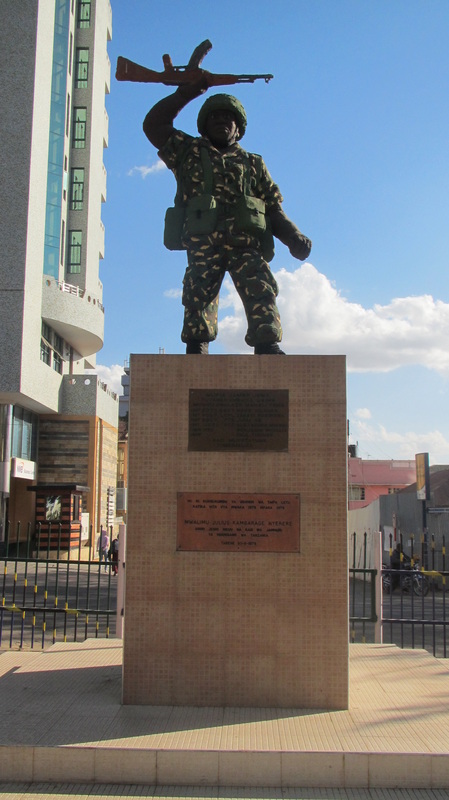Today, CNN online is running an opinion piece by Calderisi that recalls the conclusions from his book and includes a few new statistics in support. Hopefully this column will introduce Calderisi's book to new readers. It is not an academic treatment, but this increases both its readibility and audience. He tackles tough issues including culture, leadership, political correctness, and the inertia of the development industry (governmental, international, NGO, private sector). Generalizations and recommendations abound, and there are a few factual errors that may upset the specialist, but it is the practical experience he draws on that provides enlightening and disheartening examples of the obstacles to better governance that aid faces and, perversely, sometimes produces. This is a highly critical perspective from a one-time IFI insider; Calderisi is not well received by some African elites, many in the development community, and scholars that subscribe to various structural under-development of Africa theses, but his book and perspective is worth a look. His work provides some influence on the concept of "routinized intervention" that I am currently developing in my work on the formative years of Canadian and American foreign policy and engagement in Africa during the independence era.
|
AFRICA IN THE WORLD
Robert Calderisi is a Canadian retired World Bank official that doesn't hold back. Frustrated after years of working in and on Africa during spells at CIDA, the OECD, and the World Bank, Calderisi published his provocative The Trouble with Africa: Why Foreign Aid isn't Working with Palgrave in 2006. This predates the firestorm around Dambisa Moyo's Dead Aid by three years.
Today, CNN online is running an opinion piece by Calderisi that recalls the conclusions from his book and includes a few new statistics in support. Hopefully this column will introduce Calderisi's book to new readers. It is not an academic treatment, but this increases both its readibility and audience. He tackles tough issues including culture, leadership, political correctness, and the inertia of the development industry (governmental, international, NGO, private sector). Generalizations and recommendations abound, and there are a few factual errors that may upset the specialist, but it is the practical experience he draws on that provides enlightening and disheartening examples of the obstacles to better governance that aid faces and, perversely, sometimes produces. This is a highly critical perspective from a one-time IFI insider; Calderisi is not well received by some African elites, many in the development community, and scholars that subscribe to various structural under-development of Africa theses, but his book and perspective is worth a look. His work provides some influence on the concept of "routinized intervention" that I am currently developing in my work on the formative years of Canadian and American foreign policy and engagement in Africa during the independence era.
1 Comment
|
AuthorChris WJ Roberts is a Canadian international business and policy consultant; a student of African politics, international relations, and Canadian foreign policy working towards a PhD in political science at the University of Alberta; and an instructor in political science at the University of Calgary since 2014 Archives
February 2016
Categories
All
|



 RSS Feed
RSS Feed
